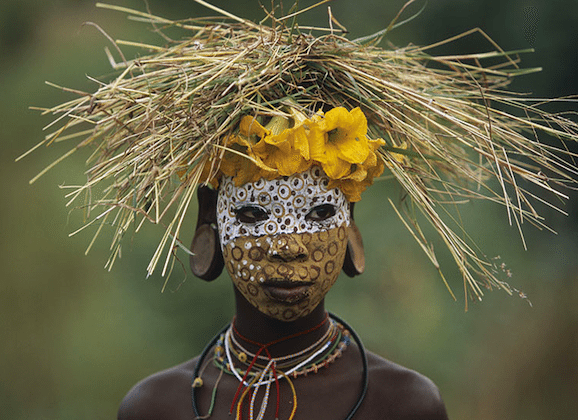Ethiopia is made up of a number of ethnic groups defined by the differences in their cultural practices. These differences are however quite small and are even unnoticeable if you are not keen enough. Though the cultural practices are not as extreme as it may be in some other African communities, there are some parts of the Ethiopian culture that are quite bizarre and outright creepy.
Archeologists have found the oldest known human ancestors in Ethiopia, including Ardipithecus ramidus kadabba (c. 5.8–5.2 million years old) and Australopithecus anamensis (c. 4.2 million years old). Originally called Abyssinia, Ethiopia is sub-Saharan Africa’s oldest state, and its Solomonic dynasty claims descent from King Menelik I, traditionally believed to have been the son of the queen of Sheba and King Solomon. The current nation is a consolidation of smaller kingdoms that owed feudal allegiance to the Ethiopian emperor.
Wondering how creepy they can be? Read on!
1. The Cultural Wedding Night.
The marriage arrangement in the Ethiopian culture is quite the usual African way of doing it. The formal introductions, paying of the bride price followed by music and dance with feasting. However, the creepy part kicks in during the wedding night when the groom deflowers his bride. Virginity, unlike in most other African or western cultures is highly valued. Actually, you have to be a virgin otherwise there are serious consequences for it. The bride takes her scarf to her matrimonial bed while the groom’s mother and best man wait in the next room and it is used to take blood as proof that she was a virgin. If there is no proof of virginity, then her husband whips her and even sends her back to her people. Once such a bride is sent back, her people are required to refund the groom’s side all the money and gifts they gave for bride price. If proof is found, however, the groom’s mother and the best man take possession of the stained scarf and emerge triumphantly to declare the purity of the girl. The celebrations with the stained cloth do not end there, the cloth is then taken to the bride’s family five days later with gifts to congratulate the family for the right upbringing of their daughter.
See Also: 5 Weird Cultural Practices in Uganda
2. Pregnancy
Pregnancy is something that is expected to happen almost immediately after marriage in some African cultures. In most African communities, pregnancy is awaited with zeal and anxiety and people even start buying baby related things as soon as they realise they are carrying a life. In some other Ethiopian culture, however, and in almost all the ethnic groups, pregnancy is not mentioned or even discussed unless it is noticeable. In addition, it is considered a taboo to buy anything baby related before the child is actually born. The expectant mother is also expected to perform all her chores during this period as it is believed to ease childbirth. Once she is on her 8th month, the expectant woman then collects some of her belongings and goes back to her mother’s house where she is expected to stay until after she brings her child to birth and completely healed.
3. Ethiopian Greetings
Handshakes, hugs and kisses are all forms of greetings in most African cultures. However, it’s not everyone’s hand you can shake or otherwise. In Ethiopia or Ethiopian culture, the art of greetings is taken quite seriously. For example, a male does not extend his hand to greet a female. Instead, he waits to see if she will extend her hand and only then can handshakes be exchanged. In another case, people of same-sex may kiss on the cheeks three times if they have a close friendship. I do not know if this seems creepy to anybody else but men kissing on the cheeks? Leaves a lot to think about.
See Also: 5 Bizarre Cultural Practices in Kenya
4.Child Birth and Postpartum Practices
When a mother-to-be goes into labour, she can only tell her mother and a close female friend. Her husband is kept in the dark by all means and is only notified once the child is born. During this time, close female friends and family gather around to ritually roast and drink coffee and burn incense. The weirdest part of some Ethiopian culture comes after the child is born where the mother and child are kept in isolation for 40 days even from the father of the child.
5. Traditional Medicine
In Ethiopian culture, diseases do not just occur. Illnesses are not caused by natural causes but are seen as punishment for wrongdoing or possession by the evil spirits. Traditional Ethiopians will not seek modern medicinal help in case of an illness but will rather look for the help of traditional healers. Herbs accompanied by spiritual interventions are used to cure illnesses. Things get even worse if one is mentally ill. This is strictly considered as possession by the evil spirits and such persons are isolated and locked in rooms where only the traditional healer is allowed to visit. Friends and family of such persons then take part in traditional prayers to cast out the demons possessing one of their own.
